- Topics
- Campaigning
- Careers
- Colleges
- Community
- Education and training
- Environment
- Equality
- Federation
- General secretary message
- Government
- Health and safety
- History
- Industrial
- International
- Law
- Members at work
- Nautilus news
- Nautilus partnerships
- Netherlands
- Open days
- Opinion
- Organising
- Podcasts from Nautilus
- Sponsored content
- Switzerland
- Technology
- Ukraine
- United Kingdom
- Welfare
My Merchant Navy war – a seafarer's story of being caught up in conflict
15 November 2019
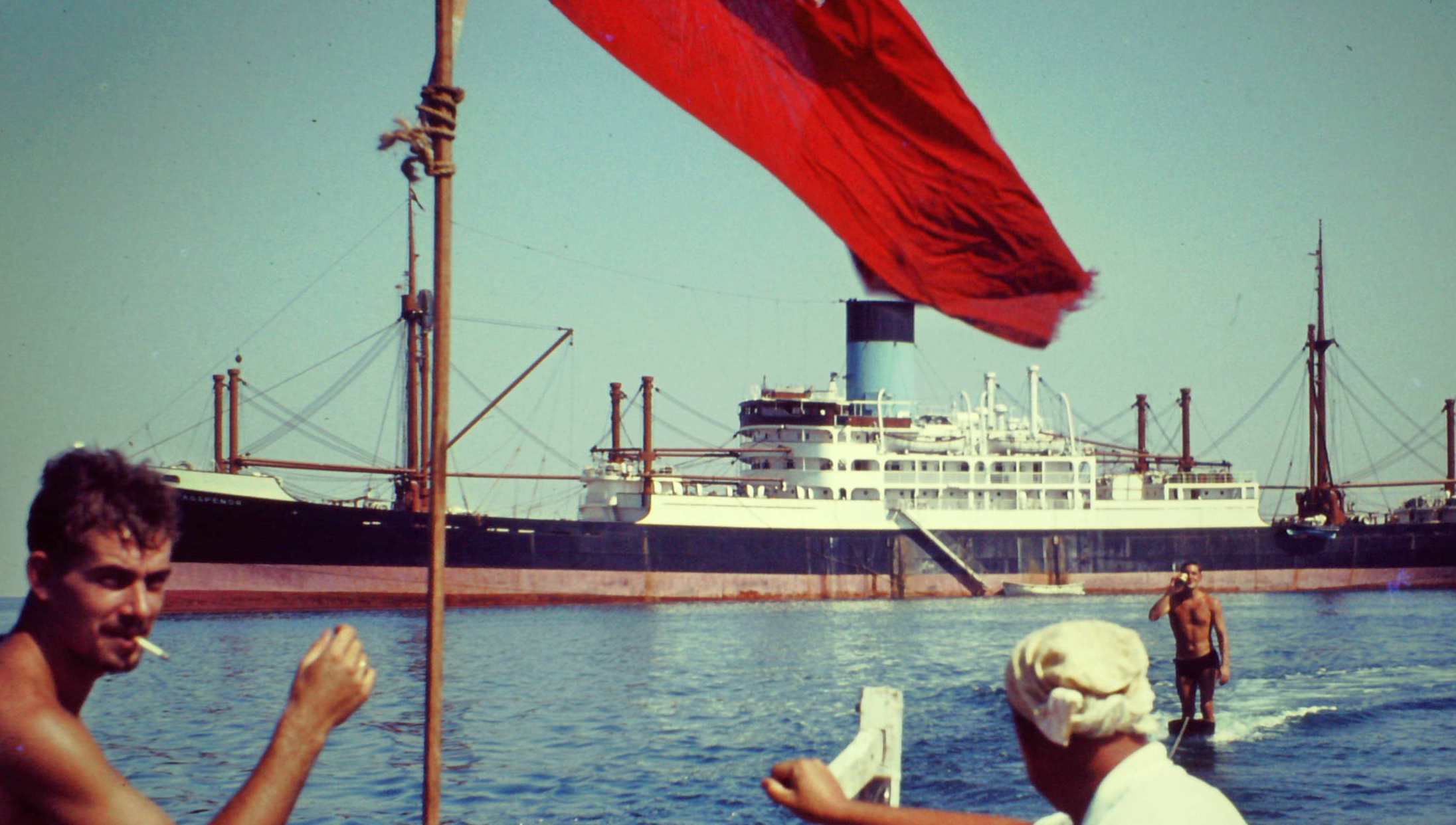
As the crew of the Stena Impero found earlier this year, it is all too easy for merchant seafarers to become caught up in a conflict in which they have no stake. A famous example of this was the 1967 Six Day War, which Nautilus member Peter Flack remembers well
On 17 March 1967, I signed on as third mate on the Blue Funnel ship MV Agapenor at Birkenhead, near Liverpool. It was for a voyage to and from the Far East, including Singapore, Hong Kong and the Philippines.
Our cargo from those countries would have included sawn timber, rubber bales and cartons of goods for Woolworths, Boots and suchlike. Also, deep tanks of latex. On leaving the Orient it was usually full speed for the UK. However, on this trip there was to be one more port of call: Aden. This was to load a cargo of ammunition, for at that time we had Royal Marines stationed in the Yemen.
The Agapenor arrived at Suez Port, a few days’ passage from Aden, in the early hours of 5 June. We joined up with the other ships about to make up the north-bound convoy to navigate the Suez Canal. The oil tankers always headed the convoy, with the freighters following during the 100-mile passage. The Agapenor was the last but one in the line. At 0800hrs, with the Egyptian pilot already onboard, I relieved the chief officer. Shortly after this, the captain, Freddy Squires, blew up to me, using the windpipe and whistle. Strange, I thought, but the reason immediately became apparent.
‘Mr. Flack, I have just heard on the BBC World Service that war has broken out between the UAR [as Egypt was then known] and Israel, but do not tell the pilot. Should you see anything, let me know immediately.’
‘Aye aye, sir.’
Straight away I informed the young midshipman, and figuring that there may be a possibility of military action taking place, requested him to fetch my camera. With our quartermaster at the heel we kept a sharp lookout – and then a call came from the midshipman: ‘Jet planes approaching from the East.’
It was 0845hrs, and the jets came out of the sun, flying low, fast, using the convoy as cover. Nearly scraping our mastheads, one could easily make out the Israeli markings of the Mystères. We all ducked.
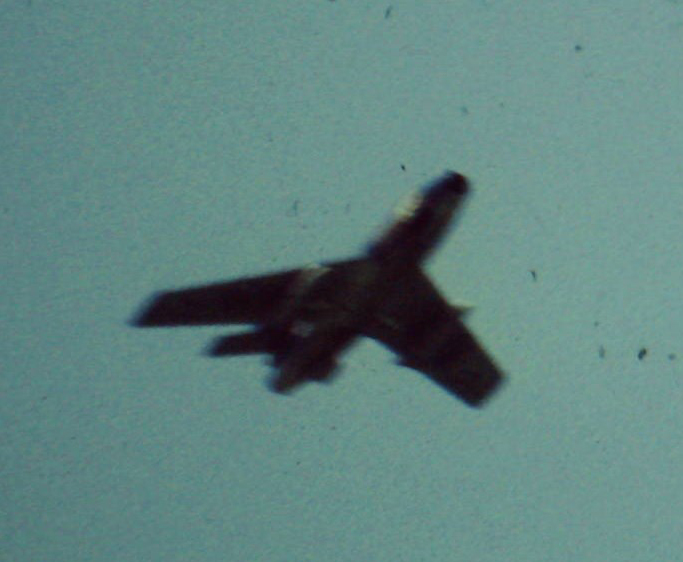
The attack was fast, furious, and devastating. The Egyptian Air Force was caught completely by surprise, and most of their planes were bombed out, smashed and put out of action for the rest of the war.
Those planes that did manage to get airborne stayed high and circled like vultures hoping to save themselves for another day. The carcass lay below.
‘They have asked for it now,’ exclaimed the pilot.
With the job done and the fuel depot afire, the Israeli planes flew home, again using us, the convoy, as cover and with the following ‘ack ack’ fire in hot pursuit. Once again, we all ducked, and we all survived. It was close.
With the captain on the bridge, we went to anchor in the Great Bitter Lake, along with the other freighters. That is, apart from the two Russian ships that were allowed to turn around and head back to Port Suez. There were 14 remaining ships, from West Germany, Sweden, France, United States, Poland, Bulgaria, Czechoslovakia, and United Kingdom. There were four British ships: Port Lines’ Port Invercargill, the Blue Star ship Scottish Star, and the two Blue Funnel vessels Melampus and us on the Agapenor.
There were a few more sporadic raids throughout the day but in truth there was not much else to bomb. As night-time approached, all ships were ordered to blackout. Keeping anchor watch was quite ghostly, spooky even, with just the silhouettes of the ships showing in the darkness.
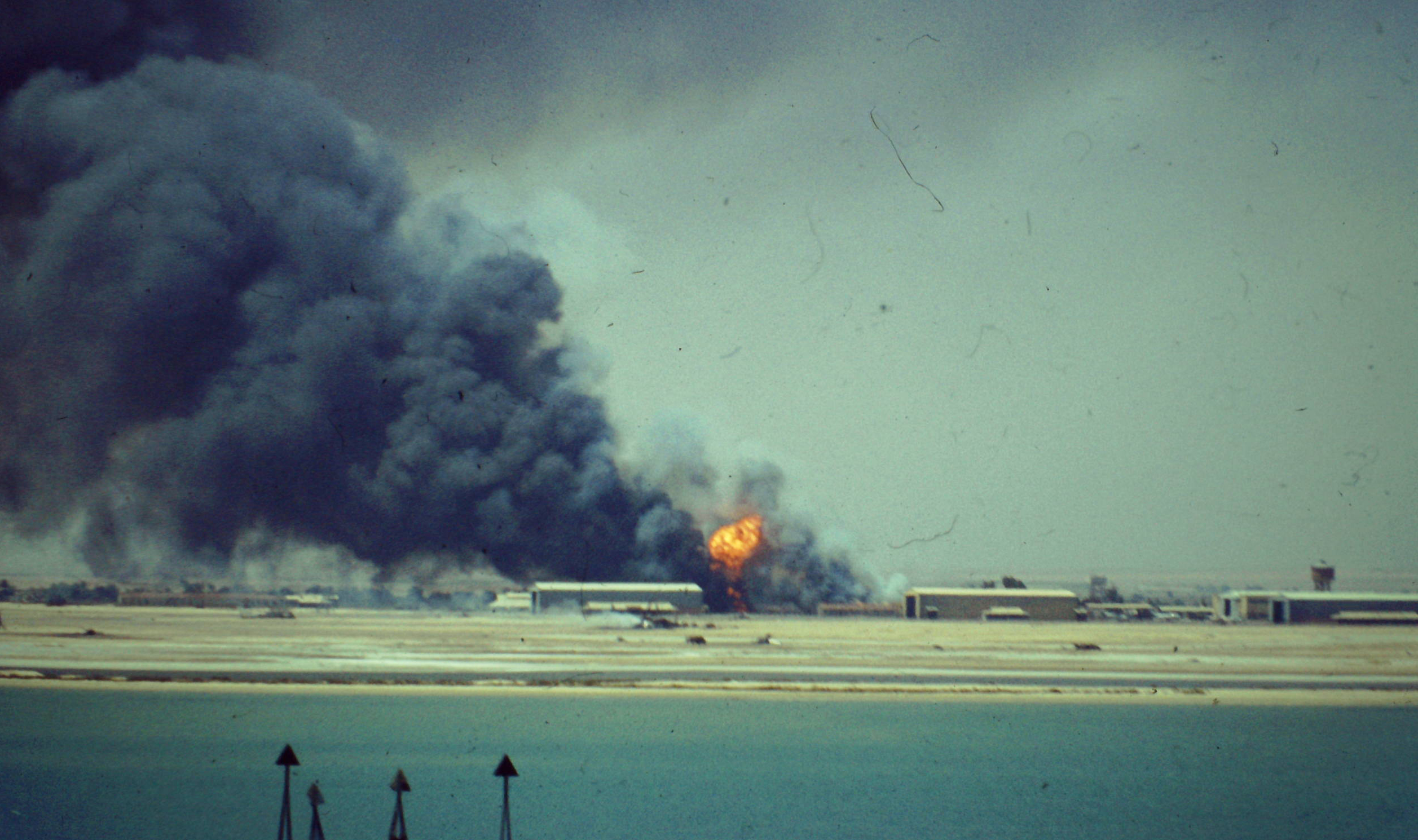
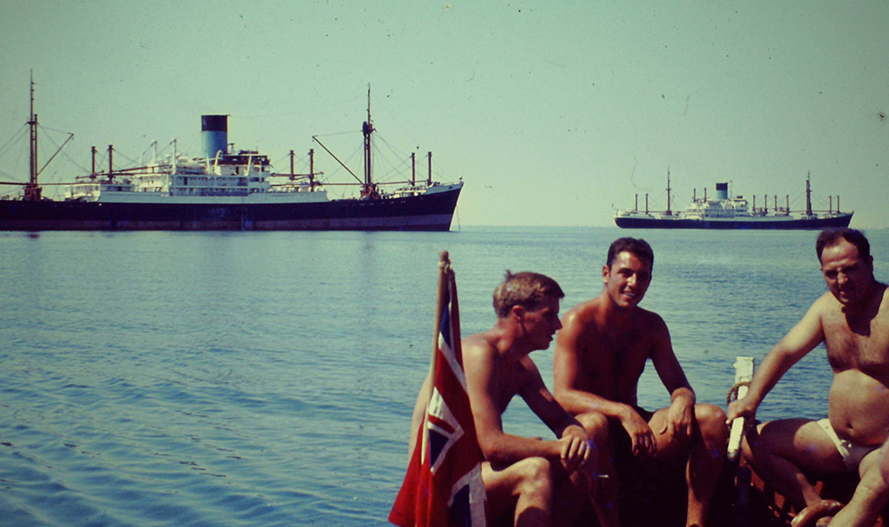
The following day, 6 June, it was rumoured that the Canal was blocked, but then quite late in the day, the southbound convoy passed through, to late then for us to make our way north. ‘Ah well, tomorrow it will be.’ Not at all, and then it became obvious that we were being held hostage as bargaining chips in any future negotiations.
On 8 June the Canal pilots were landed, and police guards were put onboard all vessels. The only information we were receiving was from the BBC World Service. It soon became apparent that the UAR forces were sustaining heavy losses, so much so that after six days they surrendered. Shortly after, large numbers of Egyptian forces were showing up on the eastern shores of the Lake, and several ships close to the shore were able to render valuable assistance to these devastated troops by conveying them to the opposite bank in their lifeboats.
Feeling neglected and without news, shipboard life took on a survival mode of living. Ship maintenance, playing cards, sing-songs, deck tennis, darts, swimming, listening to song and music from our tape recorders. I remember that the Beach Boys were very popular at the time, and Petula Clark’s Downtown was a favourite.
Another popular pastime was surfboarding. We had made a surfboard that was able to be towed by our lifeboat. On one occasion, out surfboarding, we strayed too near to the Egyptian side of the Lake and they sent a volley of gunfire our way. Unfortunately, it was me being towed on the board at the time, and so I immediately submerged myself under the water. I held my breath for as long as possible, and then tried to resurface, but the surfboard would not let me. It tended to dive even lower, but somehow or other, out of desperation and brute force, I managed to resurface.
Once I was safe onboard the lifeboat with my shipmates, we decided to head towards the Port Invercargill. Alongside the ship we climbed the gangway to be greeted by the second mate. I could not believe my eyes.
There he was, an old school chum, classmate of the London Nautical School, Gus Parry. How do these coincidences occur? We even used to catch the same 109B Blackfriars bus to school. After a brief showing around and exchange of stories, we headed back to our very own Agapenor, and on lifting the boat back onboard, we discovered a spent bullet!
Life onboard carried on patiently and with the occasional exchange of food and goods to make living more bearable. There were not many occasions when ship visits occurred, with most crews keeping to their own vessels as they would when trading around the world. Most kept in good cheer although others did show signs of anxiety, understandably so.
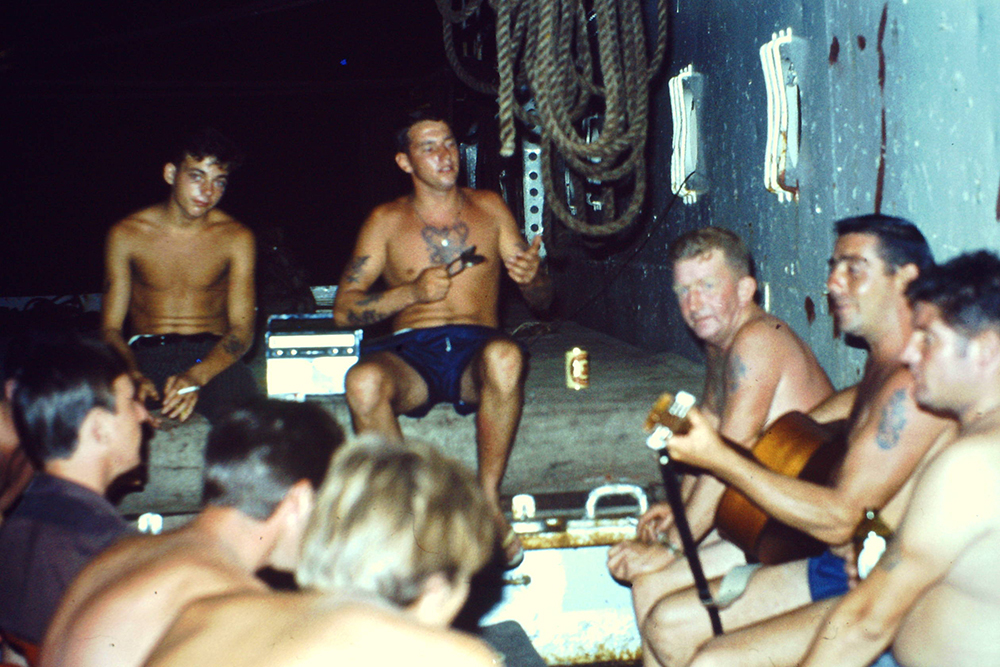
It was good news when, after six weeks, the Egyptian authorities decided to allow half the complement of crews to fly home. Obviously, the young apprentices and deck boys were included in this number along with those showing signs of anxiety. The opportunity was also used to exchange and replenish the ship’s library. To our delight, a projector and accompanying films were brought onboard. Ironically, given our situation, the very first film to be shown was Born Free, starring Virginia McKenna and Bill Travers.
Another form of entertainment was listening to The Merchant Navy programme which used to be broadcast by the BBC on Thursday evenings. Loved ones at home would send out song and message requests. With me it was the song Up, Up and Away, by the 5th Dimension. If only!
Then finally, three months from the outbreak of the war, the authorities decided to allow the relief of the crews by volunteers from the different shipping companies. Wonderful. For the British ships we ‘paid off’ on 26 August in the Great Bitter Lake. We were transported to Cairo Airport where we boarded a flight to Heathrow and on to Speke Airport, Liverpool.
For me then, after a good night’s sleep, was a hire car drive back to Hythe in Kent. A few weeks of leave and then another voyage. Simple.
Tags
